The year 2023 in Nigeria was a mixed bag of challenges and prospects. The year was largely characterized by political tensions, national elections, subsidy removal, a cash crunch, high inflation, and, above all, a change of government at the national and sub-national levels. As the nation finally counts down to the end of 2023, Persecondnews reflects on some major events that shaped the polity.
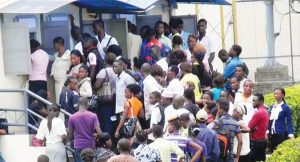
Naira scarcity
Cash shortages ushered in the year 2023. The scarcity, which occurred between January and March 2023, grounded several small and medium businesses nationwide and also pushed several households into hardship and extreme poverty through the destruction of livelihoods. The former governor of the Central Bank of Nigeria (CBN), Mr. Godwin Emefiele, introduced the naira redesign policy in October 2022, and it went into effect on December 15, 2022, which caused the scarcity. For about three months, Nigeria struggled with a shortage of cash since the CBN began to swap the old Naira notes for the newly redesigned ones, leading to a shortfall in banknotes across the country just ahead of the February/March 2023 national elections.
Amid the shortage, Nigerians had to cope with zero cash payments from bank ATMs, exorbitant charges from Point of Sales (PoS) agents, and failed mobile bank transactions.
Some state governors, including APC’s Kogi Governor Yahaya Bello, took the Federal Government to court, and a Supreme Court ruling compelled the President Muhammadu Buhari administration to ease the scarcity by allowing the old notes to circulate until April 2023. Despite the judgment, the scarcity of both the old and new Naira notes still persisted after the elections.
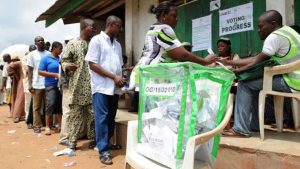
2023 general elections
The planning and conduct of the presidential and National Assembly elections, as well as the governorship and State House of Assembly elections, which were held on February 25 and March 18, 2023, respectively, were arguably the biggest political events of the year. The presidential election, which saw Bola Tinubu of the All Progressives Party (APC) emerge as the winner, had three other leading candidates: Atiku Abubakar of the Peoples Democratic Party (PDP), Peter Obi of the Labour Party (LP), and Rabiu Kwankwaso of the New Nigerian Peoples Party (NNPP).
Also, another major defining feature of the 2023 presidential election was the popularity of the LP presidential candidate, Peter Obi, who gained massive supporters known as the ‘Obidients’. In the results announced by the Independent National Electoral Commission (INEC), Tinubu led with 8,794,726 votes, the PDP’s Atiku followed closely with 6,984,520, and Obi came in third with 6,101,533 votes.
Both Atiku and Obi challenged the election’s outcome before the Supreme Court and the Presidential Election Petitions Court (PEPC) because they were dissatisfied with INEC’s announcement of the results. A heated debate about the 25 percent of votes cast in the FCT One of the main arguments made in the petition that the LP candidate, Obi, filed against President Tinubu was that he fell short of the constitutional requirement of receiving 25% of the vote in the Federal Capital Territory (FCT).
Section 134(2) of the Constitution of the Federal Republic of Nigeria 1999 (as amended), particularly sub-paragraph (b), generated heated debates and controversy for months after the announcement of Tinubu as the winner of the February 25 presidential elections. For clarity, Section 134(2) of the constitution (as amended) provides that: “(2) A candidate for an election to the office of the President shall be deemed to have been duly elected where there are more than two candidates for the election. (a) he has the highest number of votes cast at the election; and “(b) he has not less than one-quarter of the votes cast at the election in each of at least two-thirds of all the states in the Federation and the Federal Capital Territory (FCT), Abuja.”
However, the correct interpretation of sub-Section 134(2) paragraph (b) raised disputes among legal luminaries and stakeholders. This is because Tinubu failed to secure the required 25 percent of votes in the FCT, and also because Nigeria has never had any president who did not have at least 25 percent of votes in the FCT during elections.
According to INEC, the president-elect, Tinubu, scored the highest number of votes cast and also obtained at least 25 percent of the votes cast in 30 states. The question therefore arose if Tinubu had indeed satisfied the spread requirement contained in Section 134(2)(b) of the Constitution (as amended) to be the president-elect of Nigeria. While some legal experts argue that presidential candidates must score at least 25 percent of all the votes cast in the Federal Capital Territory (FCT), Abuja, aside from the other two conditions precedent, to be declared winners of an election, others are of a different opinion.
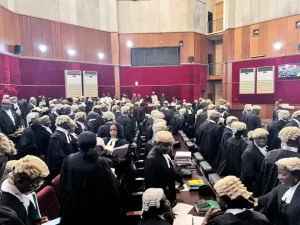
Post-election legal disputes
The 2023 polls were the most disputed and contested by the players. Contestants in the presidential, gubernatorial, and legislative polls who were not satisfied with the outcomes of the election all headed to court. The next six months after the general elections saw Nigerian justices entertaining post-election disputes. Several Nigerian jurists were constituted into an election petitions tribunal and across the federation to determine petitions emanating from the elections, with the presidential elections being the major interest of most Nigerians.
On September 6, 2023, Nigerians both at home and abroad turned their focus to the three judgments of the Presidential Election Petition Tribunal (PEPT), which were televised. The Presidential Elections Petitions Court (PEPC), in a 12-hour marathon judgment, threw out the petition of the PDP and its flag bearer, Atiku Abubakar, as well as that of the LP and its presidential candidate, Peter Obi, over lack of merit.
The five-person panel, under the direction of Justice Haruna Tsammani, not only rejected the PDP, APM, and LP’s consolidated petitions, but it also unequivocally recognized Tinubu as the winner of the February 25 Presidential Election.
“This petition accordingly lacks merit. I affirm the return of Bola Ahmed Tinubu as the duly elected President of the Federal Republic of Nigeria,” Justice Tsammani said.
Unsatisfied with the judgment, both Atiku and Obi filed an appeal at the Supreme Court, seeking the nullification of the judgment of the PEPC, which upheld the victory of President Bola Tinubu.
After listening to submissions by various counsel, the Supreme Court on October 26, 2023, dismissed the appeal by PDP’s Presidential Candidate Atiku, and his Labour Party counterpart, Obi, challenging the victory of President Tinubu in the February 25 poll. The Supreme Court also upheld the election of President Tinubu, thereby ending months of legal tussles over the presidential race. The seven-member panel, led by Justice John Inyang Okoro, ruled on Thursday against the opposition’s challenges of fraud and electoral law breaches during the election.
“There is no merit in this appeal, and it is hereby dismissed,” Justice Okoro ruled.

“Fuel subsidy is gone”
“The fuel subsidy is gone,” Tinubu declared in his inaugural speech at Eagles Square on May 29, after he was sworn in as Nigeria’s 16th President. According to the President, the immediate past administration of Muhammadu Buhari did not make provisions for subsidies in the 2023 budget beyond June.
Persecondnews reported that the Tinubu administration’s bold initiative to remove fuel subsidies put the nation’s oil industry on an even keel in the post-Petroleum Industry Act (PIA) regime. He had declared at his inauguration that the subsidy had to end because the country could no longer sustain it with trillions of naira yearly spent on it, adding that the funds being channeled into subsidies are better used for healthcare, the transportation sector, schools, housing, and national security, among others. The payment of subsidies on petrol was introduced in 2000 during the administration of President Olusegun Obasanjo.
Essentially, the subsidy on petroleum represented the government’s attempt at reducing the cost of petrol bought by citizens through the provision of direct financial support to oil marketing companies to offset their cost of transporting petroleum products from loading points to their retail outlets. In addition to this objective, the subsidy programme was supposed to stimulate economic growth while keeping the cost of petrol low for Nigerians, as Nigeria was at that time experiencing supply challenges from its refineries in Port Harcourt, Warri, and Kaduna. To get around the problem, the Obasanjo administration set up a committee to review the pricing and distribution of petroleum products.
The committee, in its recommendation, advised President Obasanjo to set up a Petroleum Products Pricing Regulatory Committee (PPPRC). Later in 2003, that committee changed into the Petroleum Products Pricing Regulatory Agency (PPPRA), which existed until 2021 before the Petroleum Industry Act (PIA) abolished it.
Meanwhile, Nigeria spent over N21 trillion on subsidies between 2005 and 2023. According to a recent report by the Nigeria Extractive Industries Transparency Initiative (NEITI), while subsidies cost N13.7 trillion between 2005 and 2021, they cost N8 trillion between 2022 and the first half of 2023 alone.
In 2005, the year the survey began, NIETI provided a breakdown of annual subsidy spending. From 2006 to 2010, the figures were N257 billion, N272 billion, N631 billion, N469 billion, and N667 billion. Palliatives to cushion subsidy removal Between May 29 and October 1, 2023, President Tinubu announced at least nine palliatives to cushion the effects of fuel subsidy removal.
The palliatives announced are to support sectors like agriculture, transportation, households, workers, and lawmakers’ welfare. These palliatives included N100 billion to acquire 3,000 units of 20-seater CNG-fueled buses, N200 billion to boost agriculture production, N75 billion for manufacturers, N125 billion for micro, small, and medium-sized enterprises and the informal sector, N185 billion as palliatives for states, and N1 trillion on student loans and other programmes.
Others included N315 billion to pay federal workers’ N35,000 allowance for six months, N1.13 trillion to 15 million households at N25,000 per month for three months from October to December 2023, N70 billion earmarked as palliative measures for lawmakers, and N75 billion loan facility to 1.5 million market women.
Commenting on the agricultural scheme, the President said, “Our plan to support the cultivation of 500,000 hectares of farmland and all-year-round farming practices remains on course.
“To be specific, N200 billion out of the N500 billion approved by the National Assembly will be disbursed as follows: Our administration will invest N50 billion each to cultivate 150,000 hectares of rice and maize. N50bn each will also be earmarked to cultivate 100,000 hectares of wheat and cassava.
“To also cushion the effect of subsidies on states, the Federal Government announced N5 billion as palliative measures for each state of the federation and 180 trucks of rice.
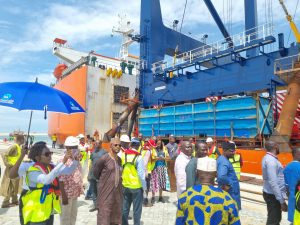
Inauguration of Lekki Deep Seaport
One major project in 2023 is the construction of the Lekki Deep Sea Port, which is projected to be Sub-Saharan Africa’s deepest port and Nigeria’s first deep seaport. The Lekki Deep Sea Port is built over 90 hectares of land at the centre of the Lekki Free Trade Zone (LFTZ), with China Harbour Engineering Company and Louis Berger Group as the contractors.
A US$629 million facility between the federal government and the China Development Bank funded the project. The China Harbour Engineering Company announced the project’s official completion on October 24, 2022, and Muhammadu Buhari, the previous president, officially opened the Lekki Deep Seaport in January 2023.
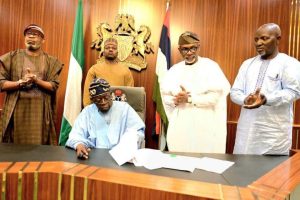
President Tinubu signed the Student Loan Bill into law
President Tinubu signed the Student Loan Bill into law on June 12, 2023. The bill, which was introduced in November 2022 by Femi Gbajabiamila, Nigeria’s current Chief of Staff, who was the speaker of the House of Representatives at the time, seeks to provide interest-free loans to students in tertiary institutions with the aid of a National Education Bank.
However, the bill was received with mixed reactions as Nigerians expressed concern over the loan requirements and two-year imprisonment punishment for defaulting on repayment. The Student Loan Scheme is expected to kick off in January 2024.

Port Harcourt refinery back on stream
Tinubu made good on his promise to rehabilitate and make the Port Harcourt refinery functional by December 2023. To this effect, the Nigerian National Petroleum Company Ltd. (NNPCL). The nation’s largest refinery announced the mechanical completion and start of the flare on December 21, 2023. Mr. Heineken Lokpobiri, the Minister of State for Petroleum Resources (oil), said in Port Harcourt that the promise to deliver Phase 1 and the mechanical start-up of the refinery has been fulfilled.
Persecondnews recalls that President Tinubu, after his inauguration, had promised to put an end to petroleum product importation by restoring the nation’s local refining capacity, as he had promised to rehabilitate the Port Harcourt refinery.
With the successful completion of Phase 1, the minister also said the government and the NNPCL were committed to delivering Phase 2 in 2024. He said, “We announce to Nigerians that, in fulfillment of our pledge to bring on stream phase 1 of the Port Harcourt Refinery by the end of 2023 and the subsequent streaming of phase 2 in 2024.
“We gladly announce the mechanical completion and the flare start-up of the refinery today, December 21.” This heralds the commencement of production and is another landmark of President Tinubu’s “renewed hope agenda.” Mr. Mele Kolo Kyari, the Group Chief Executive Officer (GCEO) of NNPCL, said in his remarks that his team was committed to ensuring that the refinery added value not only to the biggest oil firm in Africa but also to Nigerians.
“We are committed to seeing to the completion of Phase 2 in 2024,” Persecond News quotes Kyari as saying.
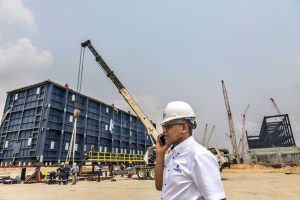
Dangote Refinery receives crude oil shipment in preparation for operations in January 2024
As the Dangote refinery steps up preparations to begin operations in January 2024, the $19 billion oil refinery received one million barrels of oil from Shell International Trading and Shipping in December 2023, the Chief Corporate Communications Officer, Dangote Group, Mr. Anthony Chiejina, announced. Earlier this month, the refinery received its first crude of 950,000 barrels from Nigeria’s Agbami crude berthed at Dangote’s offshore crude receiving terminal in Lekki on December 7, marking the initiation of crude supplies for the refinery’s operations.
According to Chiejina, Dangote Petroleum Refinery can meet 100% of Nigeria’s requirement for all refined products—petrol, diesel, kerosene, and aviation jet—and also has a surplus of each of these products for export. He added that the 650,000 barrels per day of Dangote Petroleum Refinery capacity can process most African crude grades, Middle Eastern Arab Light, and even US Light tight oil, as well as crude from other countries.
The company is scheduled to start production of diesel and aviation fuel by mid-January 2024, with Premium Motor Spirit production to follow. Persecondnews recalls that Nigeria’s immediate past President, Muhammadu Buhari, inaugurated Africa’s biggest refinery in Ibeju-Lekki on Lagos Island on May 22, 2023. The NNPC Ltd., in its bid to attain energy security in the country and boost domestic refining, was set to deliver six million barrels of crude oil to the refinery in December.
This is because the oil company has already taken an equity stake in the Dangote refinery and will start supplying crude oil to the facility. Section 109 of the Petroleum Industry Act (PIA) 2021 stipulates a domestic crude oil supply obligation to refineries, including the Dangote Refinery as well as the NNPC refineries in Port Harcourt, Warri, and Kaduna and the modular refineries scattered all over the country. The section also provides that the supply of crude oil to the domestic market shall be on a willing buyer and willing seller basis.
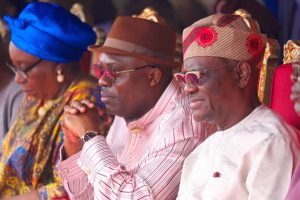
Wike-Fubara feud
A political conundrum that made the headlines of all the Nigerian dailies and digital news platforms was the Rivers State political crisis between the immediate past governor of the state, Nyesom Wike, and his successor, Gov. Similaye Fubara. The political crisis in an oil-rich state was intriguing and took centre stage for months as Nigerians witnessed accusations, counter-accusations, actions, reactions, and the hurling of brickbats at each other by Fubara and Wike, who is currently the Minister of the FCT. The crisis between the two politicians heightened in November, culminating in an attempted impeachment of Fubara.
Fubara and Wike’s loyalists were also at daggers drawn following the botched impeachment process against the governor in October by members of the Rivers House Assembly loyal to Wike. Wike had threatened “action” against Fubara for attempting to “tamper with his political structure’’ in Rivers within three months of becoming governor. But following Tinubu’s intervention by inviting the duo to Aso Rock, Fubara, a political son of the FCT minister, apologized and promised to make peace with him. However, after the apology, the fractured godfather-son relationship seemed to be deepening by the day, with protests by their supporters.
Wike had opened up about the political crisis in Rivers at a media parley in Abuja in November. According to Wike, Governor Fubara is “trying to create” a political crisis for himself. “Let me tell you, I don’t like ingrates. I can’t stand it. What is happening now in Rivers is what Odili said in his book: ‘Give a man power and money, then you will know the person.’ If you haven’t given manpower and money, then you don’t know the person.
“I left projects for him to commission so he would showcase them during his hundred days, then politics came in. We are just starting. God gave you something; you are now importing crisis.
“God gave this (power) on a platter of gold, no crisis. The federal government is not fighting you; nobody at home is fighting you. You are the one trying to create a crisis for yourself,” Wike said.
Also, amid the crisis, 27 of the 32 lawmakers who were loyal to the minister announced their defection from the state’s ruling Peoples Democratic Party (PDP) to the All Progressives Congress (APC), which led the factional group of about five members who were loyal to the state governor to declare their seats vacant. The feud, however, took a turn for the worse on Wednesday, when Governor Fubara ordered the demolition of the River State House of Assembly Complex, barely 72 hours after the defection of the 27 lawmakers loyal to Wike.
According to the governor, he took action after the chambers of the state assembly complex were burnt down by unknown political thugs on October 30. About 10 bulldozers, excavators, and other heavy-duty machines arrived at the complex around 6 a.m., and at 7 a.m., part of the building housing the Assembly and the conference hall used for public hearings had been fully brought down. Amid the ongoing demolition of the State House of Assembly complex, Gov. Fubara on Wednesday morning presented N800 billion 2024 budget estimates to some lawmakers at the Government House, Port Harcourt, which is the alternative building for sitting for their legislative businesses pending the reconstruction of the complex.
The governor had presented the budget to only five lawmakers, with Mr. Edison Ehie as the factional speaker. However, the demolition and presentation of the budget to a five-man panel elicited criticism from several people.
With the inauguration of the Port Harcourt refinery and the Dangote refinery preparing for takeoff in January 2024, as well as the palliatives on the ground to cushion the effect of subsidy removal, Nigerians would have some form of relief.
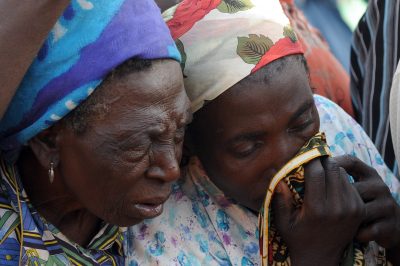
On a tragic note, a monumental Plateau Christmas Eve massacre claimed 115 lives. Grief-stricken Plateau Gov. Caleb Mutfwang has lamented that the Christmas Eve attacks on two local government areas of the state are “unprecedented and monumental,” announcing that the death toll from the massacre has risen to more than 115.
Featuring on Tuesday morning on the Channels TV programme, Sunrise Daily, monitored by Persecondnews, Mutfwang said the attacks were unprovoked and asked the security agencies to help unmask and fish out the sponsors of the carnage and their bloodthirsty foot soldiers. PersecondNews had reported the blood-curling coordinated attacks by assailants on about 15 communities in the Bokkos and Barkin-Ladi council areas of the state on Christmas eve, with the initial casualties of eight people.

On a sadder note, ailing Ondo Gov. Rotimi Akeredolu succumbed to cancer in the early hours of Wednesday, December 27
In his place, Acting Gov. Lucky Orimisan Aiyedatiwa was sworn in as the substantive governor that same Wednesday at the Government House, Alagbaka, Akure, the state capital, by the state Chief Judge, Justice Olusegun Odusola, with senior government officials and politicians in attendance.
He was the Deputy Governor until Wednesday, December 13, when power was formally transferred to him after Akeredolu went on another medical vacation to Germany.
Persecondnews reported that Akeredolu died after battling cancer. The Commissioner for Information and Orientation, Mrs. Bamidele Ademola-Olateju, announced: “With a heavy heart, the Ondo State Government announces the passing of our beloved Governor, Arakunrin Oluwarotimi Akeredolu, SAN, CON. “Mr. Governor peacefully departed from this world in the early hours of today, Wednesday, December 27, 2023. This tragedy has left behind a profound void in our hearts.
“Governor Akeredolu answered the eternal call while receiving medical treatment in Germany. He succumbed to complications arising from protracted prostate cancer.”
The new governor, Lucky Orimisan Aiyedatiwa, born on January 12, 1965, is a businessman and politician. He previously served as deputy governor of Ondo State from 2021 to 2023 under Akeredolu and was a one-time commissioner in the Niger Delta Development Commission (NDDC).







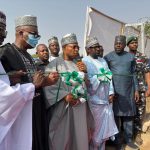




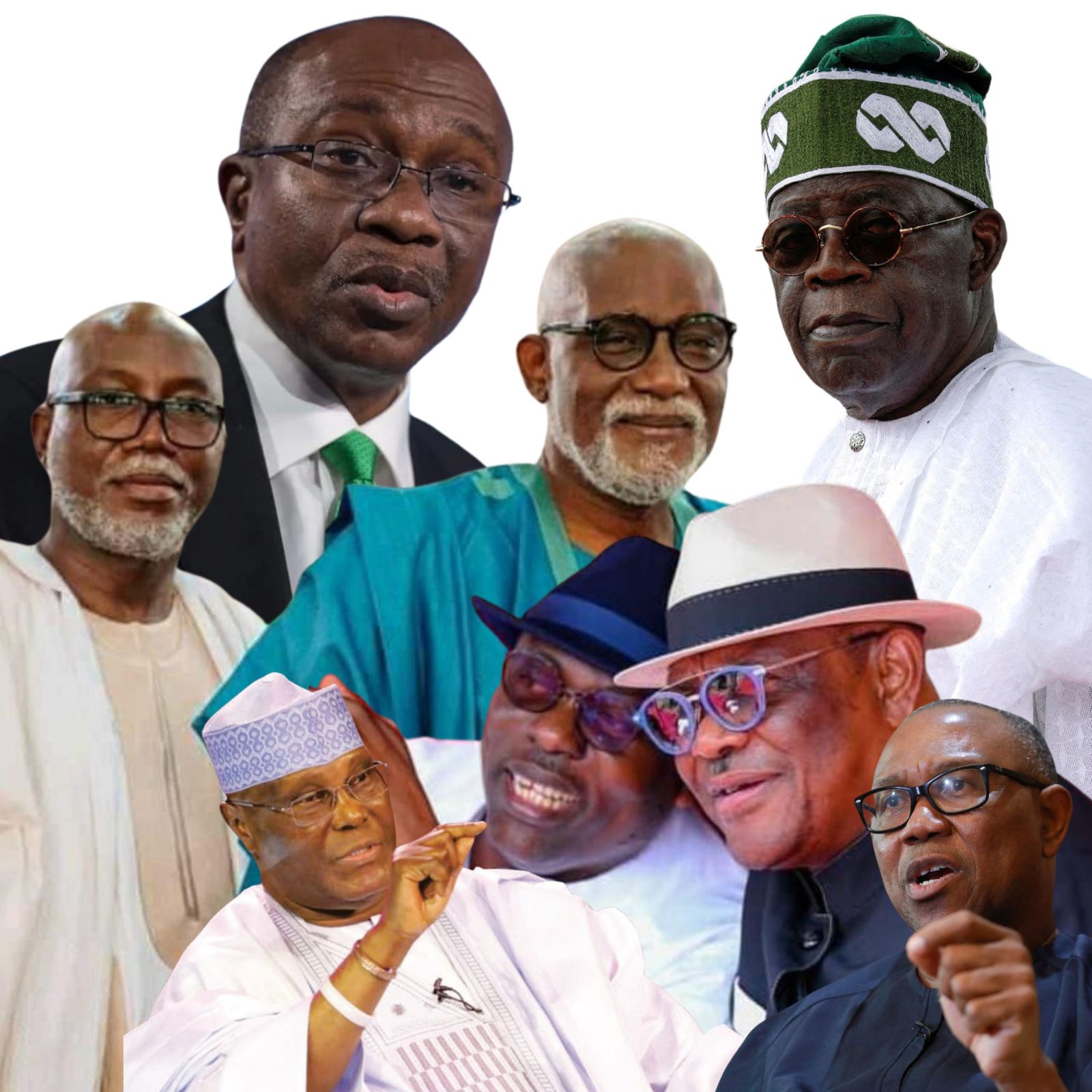

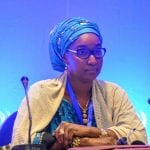

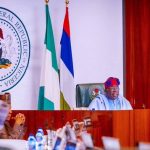


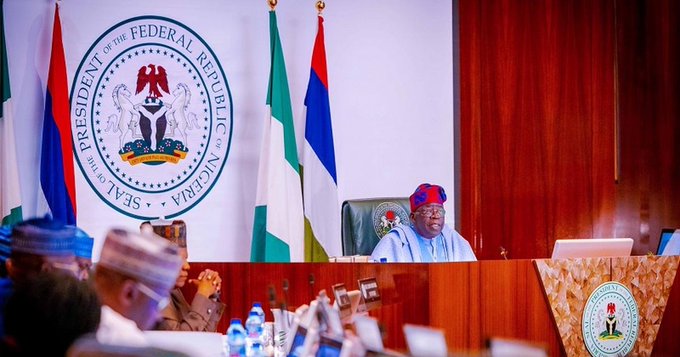
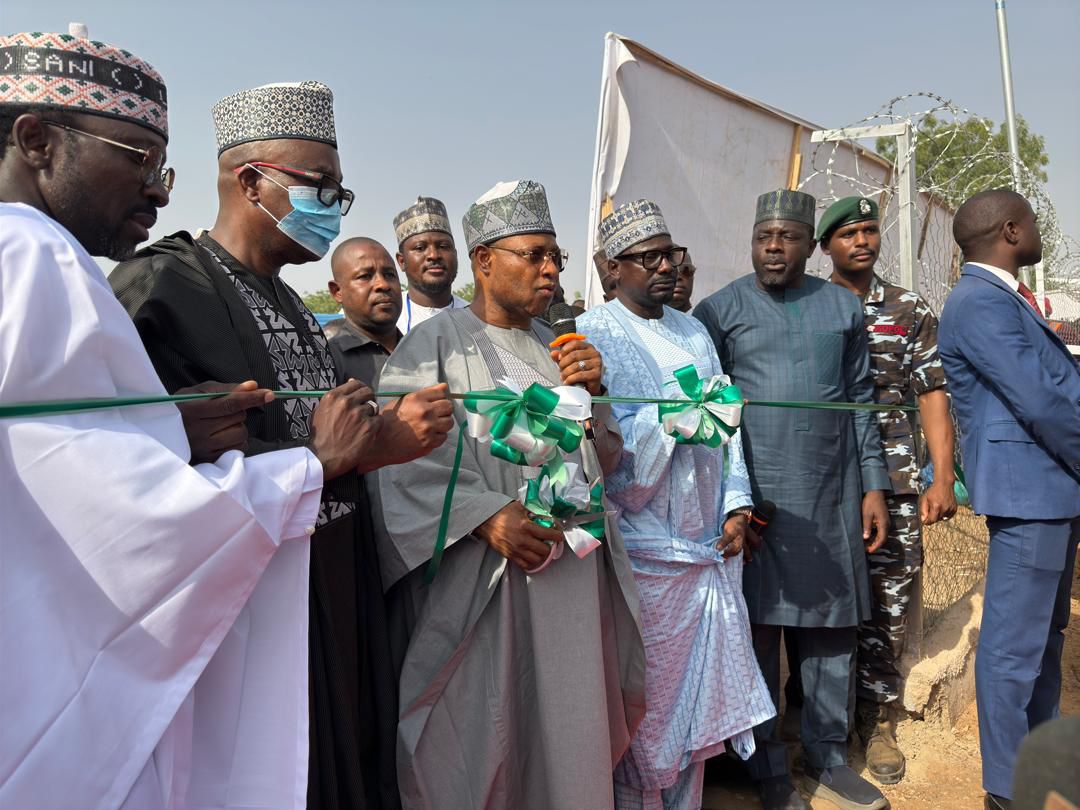
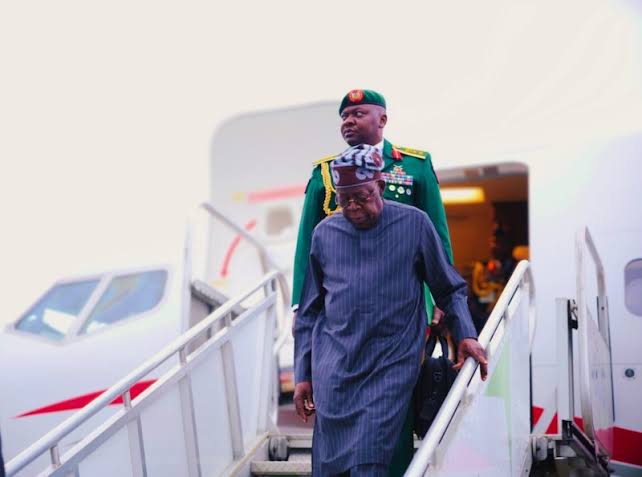



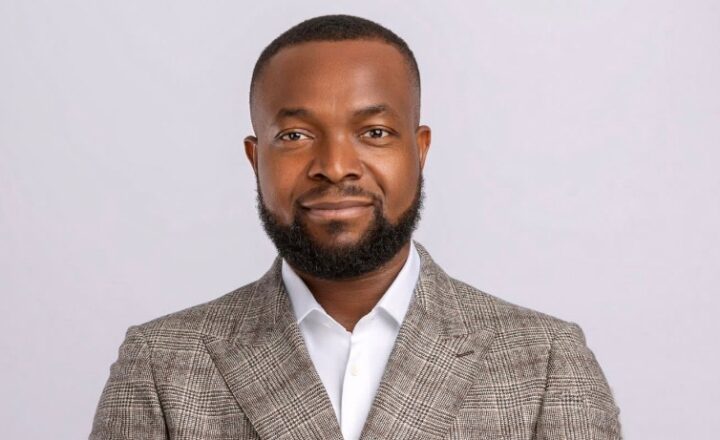
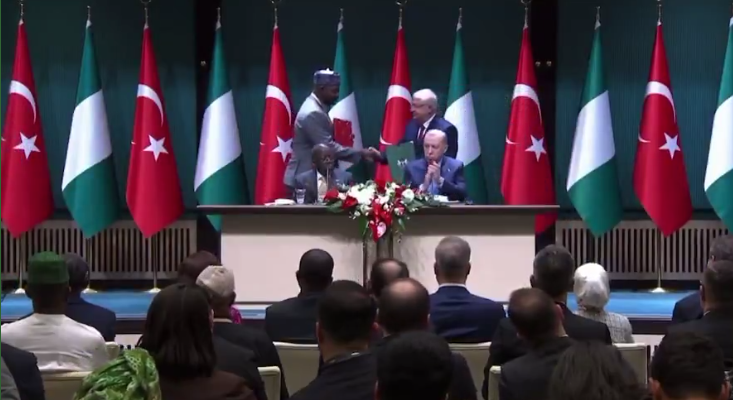
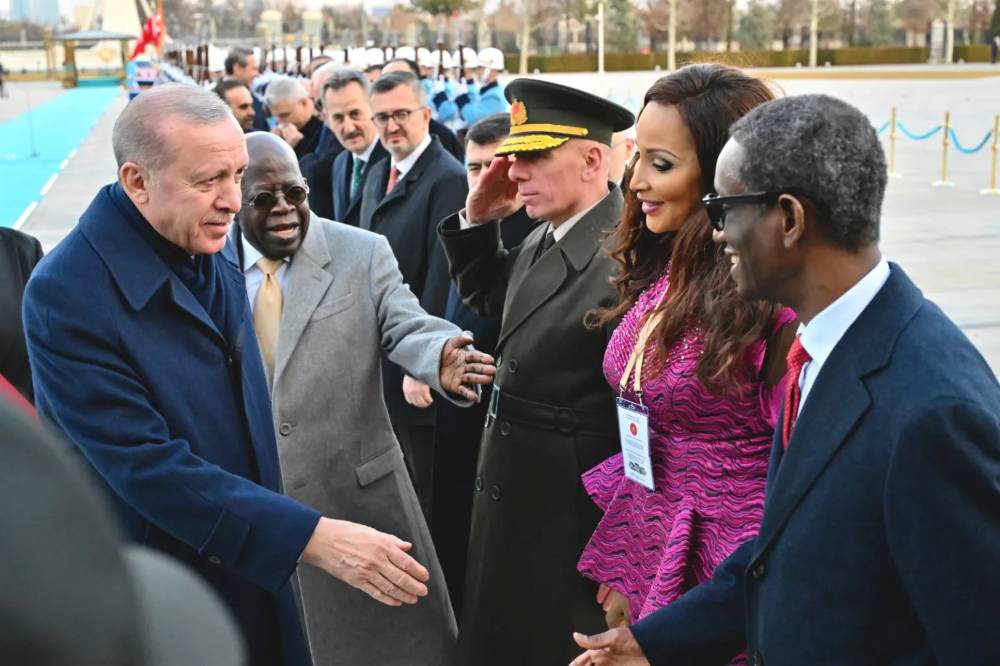
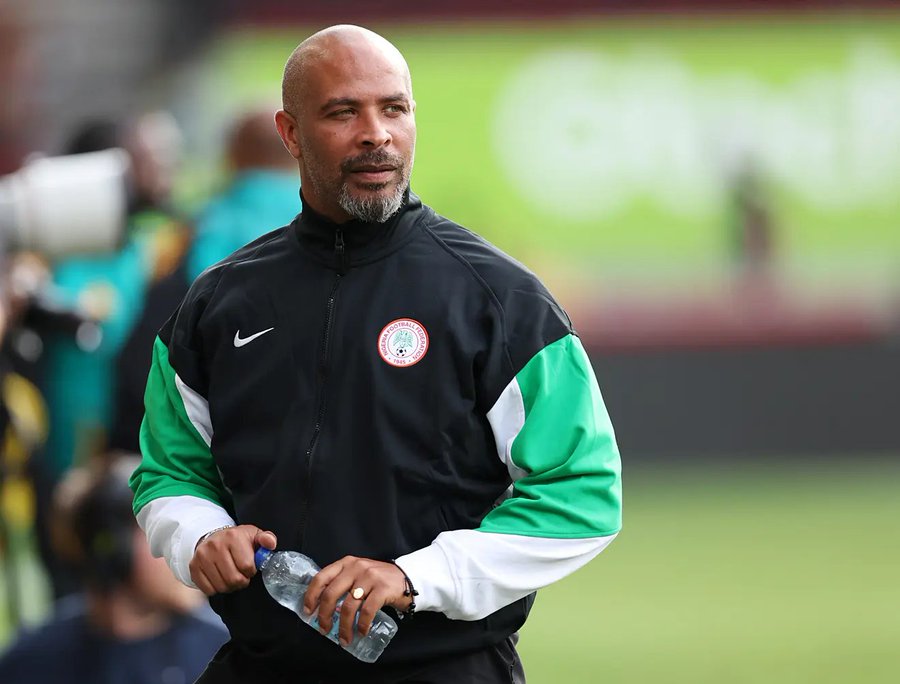


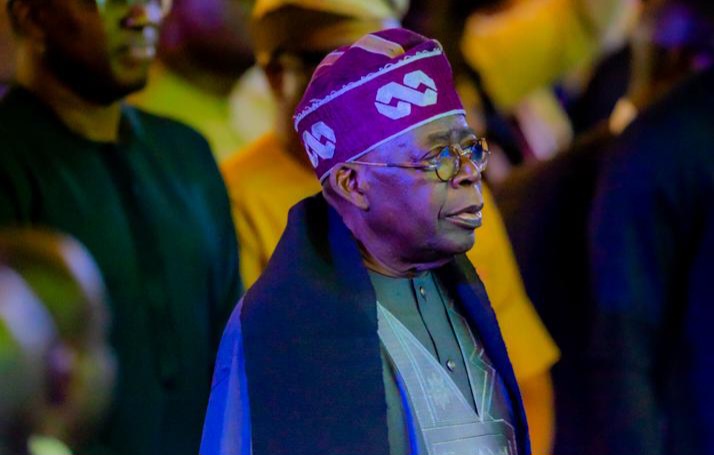
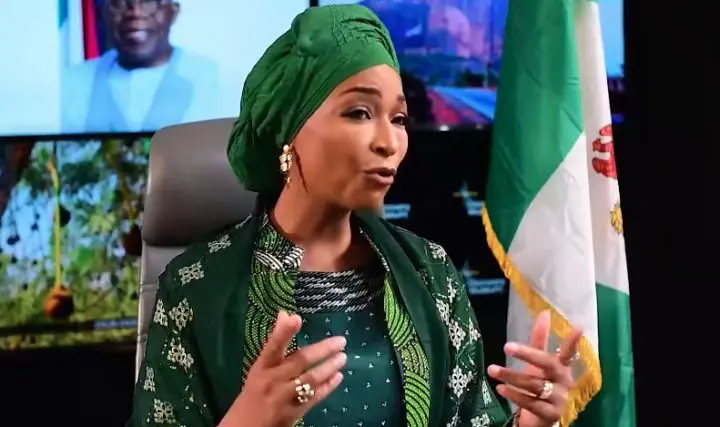
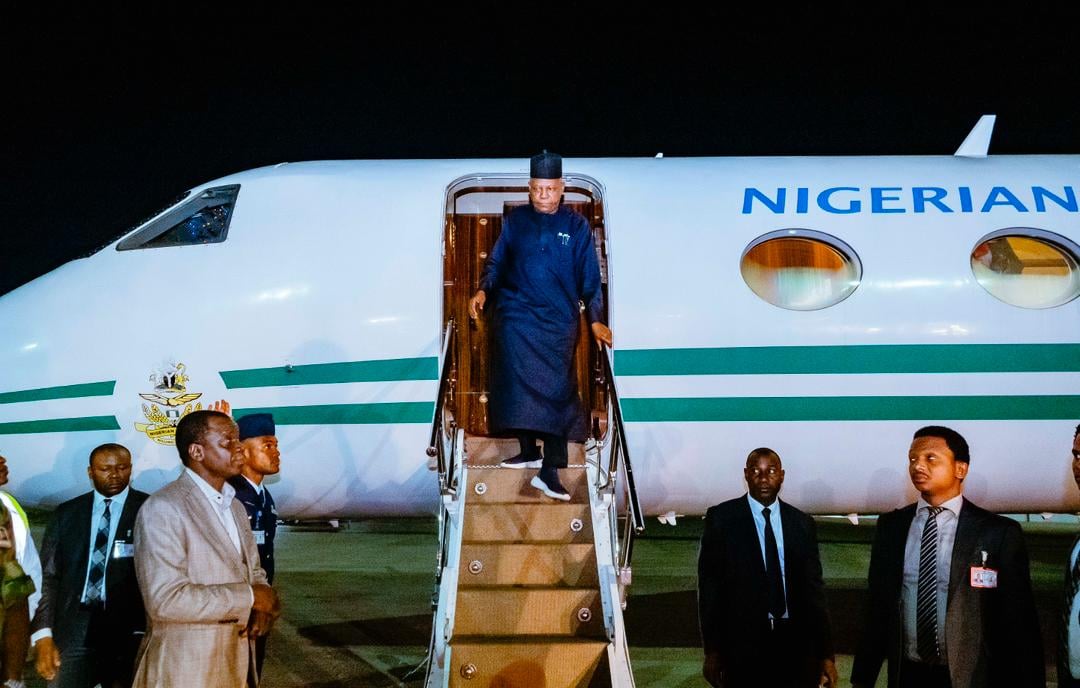
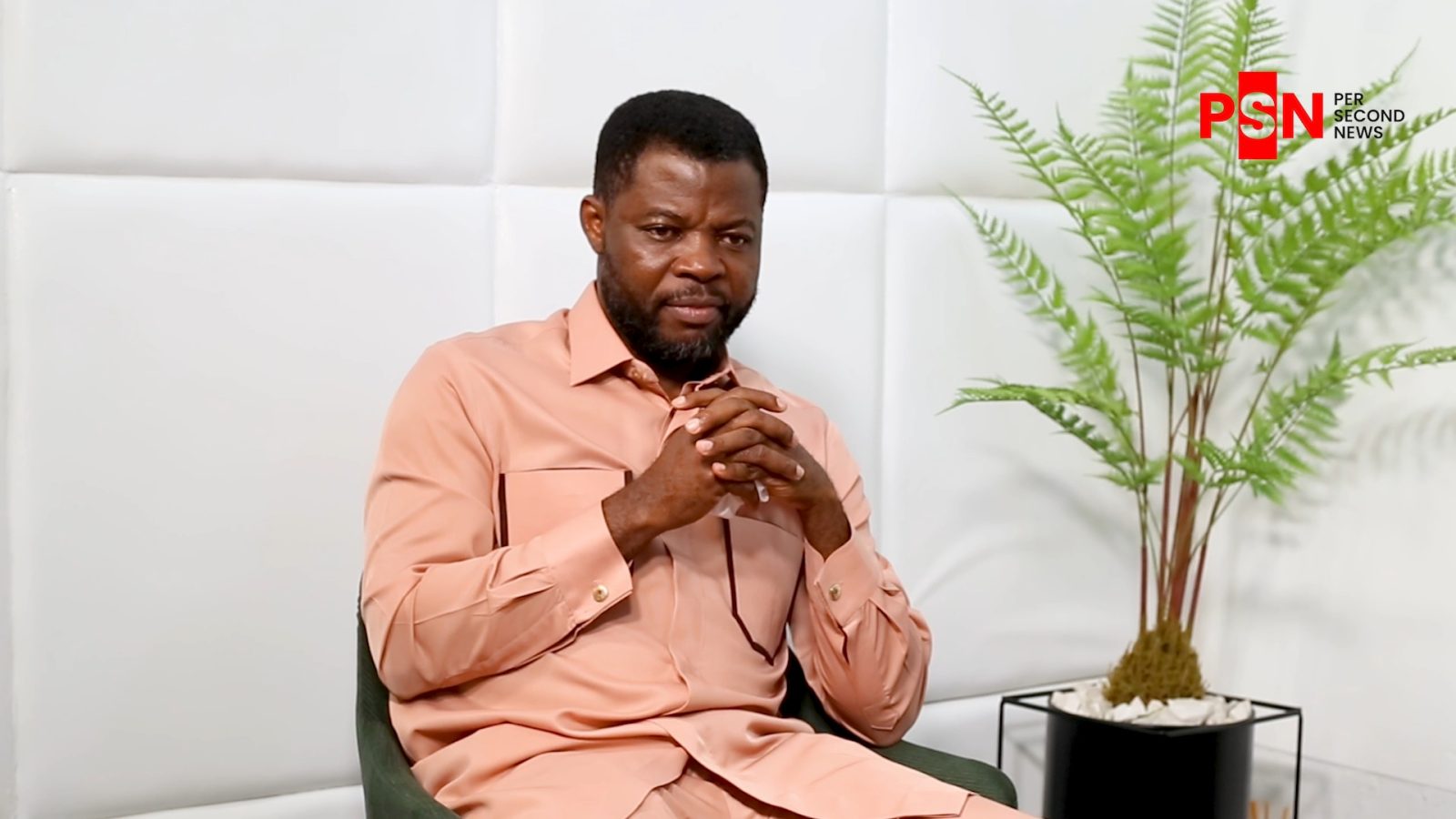
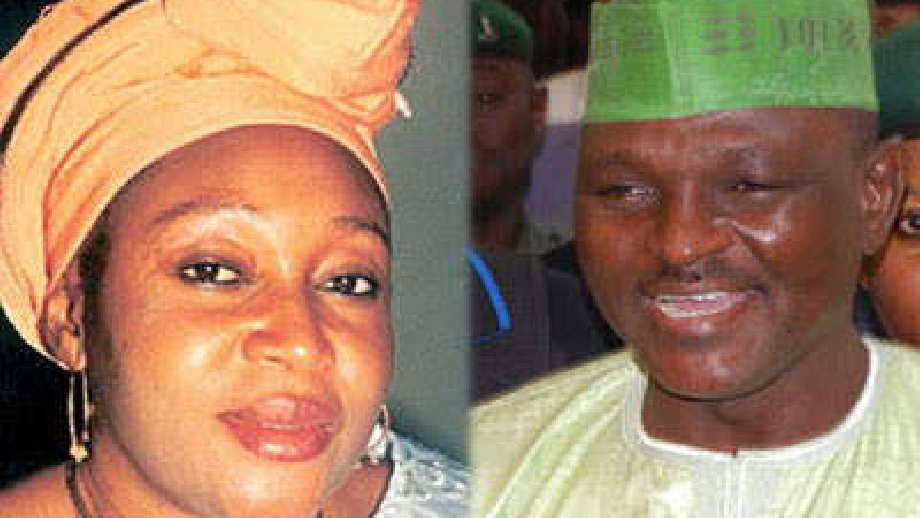
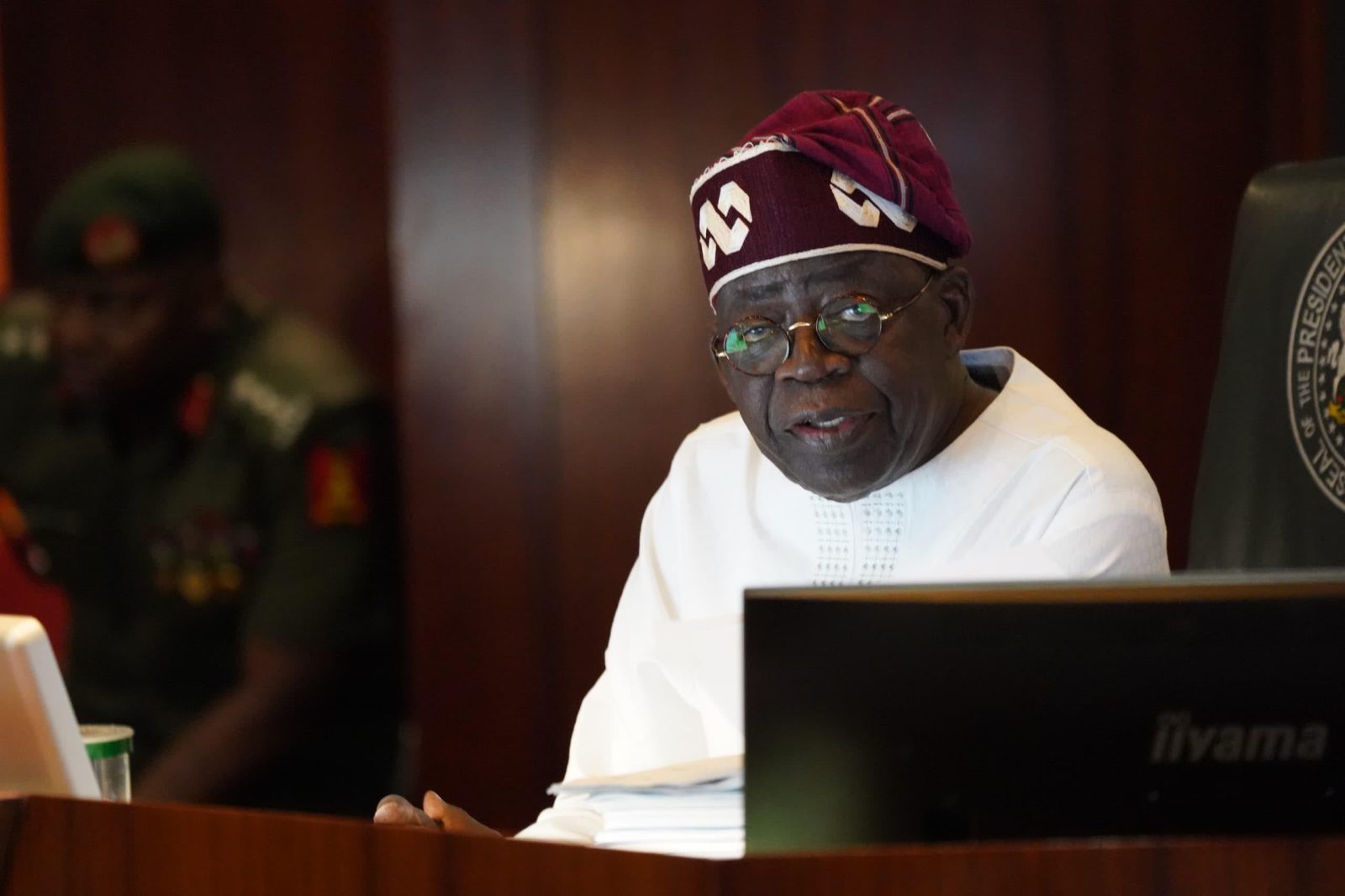
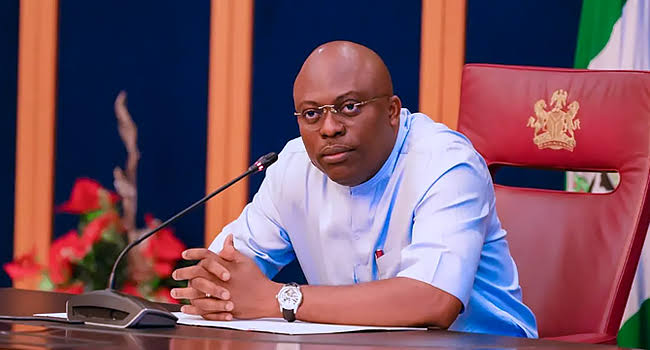
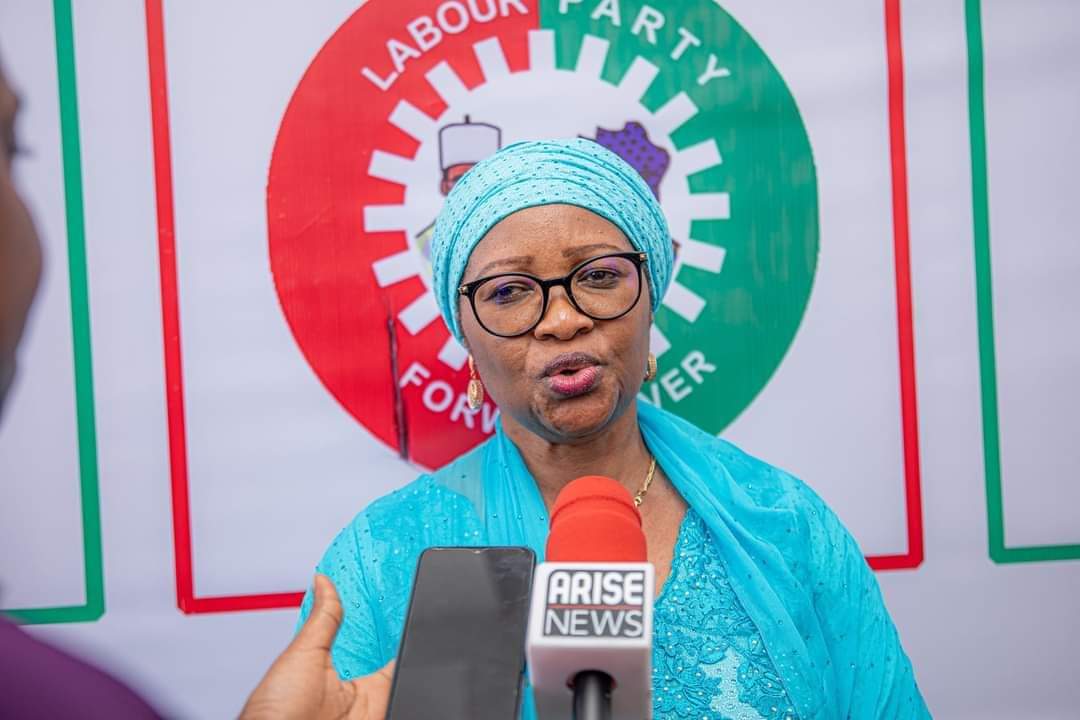
Leave a comment